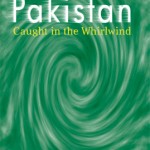IDR Blog
A View from Washington
Last month I found myself, again, interacting with the various think tanks in Washington DC. This has been a tradition with me going back 26 years to 1991. Since then, this was my 8th visit to Washington DC and for the first time a trip during which I had no contact with any officials. In all the earlier seven visits, thanks to the Consulate in Mumbai, one had a chance to exchange views with the government officials as well as think tanks. This was the first time in 26 years that such an interaction with US government did not take place. The reason as one found out, was that all these tier two and three posts are vacant with no one posted.
But what is the relevance, readers would naturally ask. This is of importance to us in India and rest of the world as it symbolizes the utter disarray in Washington DC. Unlike the Indian system where the ‘permanent’ Civil servants occupy major posts, in the US case it is not so. The highest posts occupied by the career bureaucrats are Joint Secretary Level. The higher posts like assistant, deputy and secretary are all political appointees. Nearly six months into office, the Trump administration has kept all these thousands of posts vacant. There is a palpable sense of drift as not only posts are vacant but Mr. Trump has declared his lack of faith in all ‘specialists’ or experts. The notion of many Indians that like India survived the political instability of the 1990s (the Gujral’s or DeveGawda regimes) so will the US is patently wrong. World is indeed in for a period of turmoil as American power has suddenly retreated from the world or at best is headless.
Luckily Mr. Trump’s dislike of experts does not include the military. With a result today most of the important posts in the American administration are occupied by soldiers or persons with military background. But this produces its own dilemma. Military men, and having been one myself, use reductionist logic, they are trained to do so. While reductionism works well for solving military problems, it can be disastrous when applied to solve complicated political issues. World is seeing a glimpses of it vis a vis North Korea or Venezuela! But these are small crisis, what if there is a confrontation with China or another major terrorist incident in the US?
Specifically coming to Indo-US relations, we are in for an extended period of uncertainty and regression. With the dominance of the policy making by the military, US tend to see the region of South Asia purely from the prism of its stakes/travails in Afghanistan. To the US military a favourble outcome of that conflict is the highest priority. Given the long personal association with Pakistani military, most US military leaders see Pakistani help as the only way out of that quagmire. No one has the patience to know that Pakistan is also part of the problem in Afghanistan and not just its solution. Thus one has seen a distinct cooling of Indo-US military relationship. Pakistan, in this scheme of things, has re-acquired its old ‘veto’ on the kind of military technology that US would give to India. The old argument that the US must not disturb the military ‘balance’ in the subcontinent, has acquired a new lease of life. On the other hand the US is eager to push naval technology and modernization of Indian navy as that is of its interest in South China Sea confrontation.
From the Indian perspective, while the naval threats lie in future, the confrontation with Pak-China combine on land borders is an issue of threat ‘here and now’. There is as yet inadequate understanding in the US of joint Sino-Pak threat faced by India. The Indian reluctance to develop military to military contacts with the US is hamstrung by the Babudom in the ministry of defence in India. With no full time defence minister in place, Indo-US military relations have entered a period of drift.




